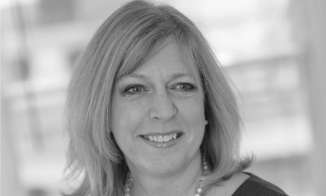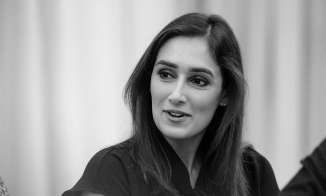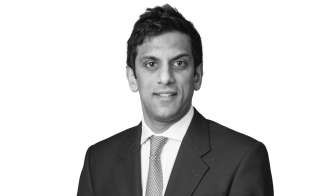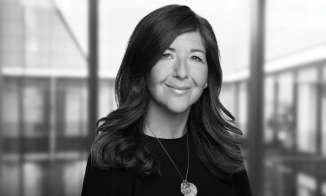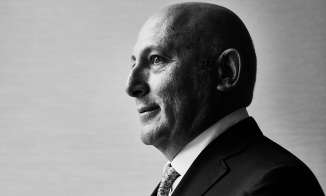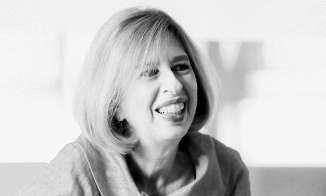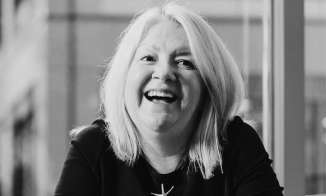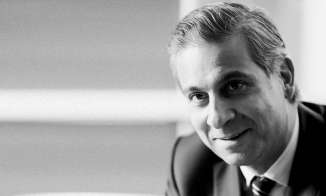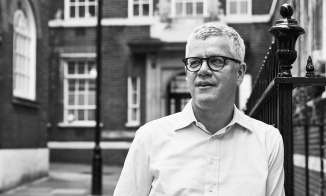I was an incredibly good girl and my mother was incredibly opinionated: I basically did whatever she told me to do! For years I wanted to be a doctor but then I realised I absolutely hated chemistry and you couldn’t be one without chemistry. So I had a crisis after my O-Levels where I thought ‘Oh God what am I going to be then?’ So suddenly my mum said: ‘Right, that’s it then, you’re going to be a lawyer.’ She’s of that generation that absolutely idolised professions – she always called our family doctor by his first name. Continue reading “Disputes perspectives: Claire Shaw”
Disputes perspectives: Gaby Dosanjh-Pahil
I’ve always wanted to be a barrister, since before I can remember. There was no particular event or anything, I just always knew. I must have seen something on TV or the news perhaps. It was easy for me, because once you know what you want to do, it’s easy to follow that path.
I’ve never been an outgoing, loud person. Although I have married my complete opposite! I was the youngest of three children, and a girl with two older brothers, so I was always wrapped up in cotton wool. But I’m quietly confident. Continue reading “Disputes perspectives: Gaby Dosanjh-Pahil”
Disputes perspectives: Tony Singla QC
I’m the youngest of three children. My brother and sister both read law at university, and have become lawyers themselves. My sister is a general counsel, and my brother is a silk. They’re both older than me, and when it came to applying to university, there wasn’t much choice on my part! I benefited a lot from their revision notes…
I briefly contemplated a career in the City, and I did an internship at Goldman Sachs in 2005. It was useful in the sense that it confirmed that I did want to pursue a career in the law. Continue reading “Disputes perspectives: Tony Singla QC”
Disputes perspectives: Tracey Dovaston
I’d like to say becoming a lawyer was a very well-thought-out decision in my teenage years, but it wasn’t. I recall taking a career aptitude test at school, and it was one of the few professions I’d actually heard of. Law sounded interesting, and I’ve always enjoyed the legal wrangling in various TV shows. Showing my age, it included the less esoteric ones at the time, like LA Law in the late 80s and early 90s.
I picked Herbert Smith. I applied to a number of places, but I had heard partner Lawrence Collins, now Lord Collins of Mapesbury, speak at a careers event at university. Herbert Smith was well-known as a preeminent litigation firm and so I thought that was where I wanted to go. I wrote to him directly. I didn’t think it would make any difference, but it did. When I started, I was a trainee in his litigation department. I had an opportunity to work with him first hand, and he supported me in the early stages of my career. Continue reading “Disputes perspectives: Tracey Dovaston”
Disputes perspectives: Craig Pollack
I was supposed to study economics and realised I was not a very good economist. Then I went to study law in Israel and almost from the first lecture it all made sense. It explained the rule of law means we’re all treated equally and there’s due process if you get arrested. I come from Africa where in Zimbabwe and in South Africa there was no rule of law for black people.
I was hooked early on, but wasn’t hooked as a litigator. I thought I’d be a corporate lawyer, come to England, get involved in all this big M&A and it would be a fantastic, go-go, rock ‘n’ roll thing. Continue reading “Disputes perspectives: Craig Pollack”
Disputes perspectives: Geraldine Elliott
I wanted a professional career. My father was a doctor but very keen I didn’t do medicine. I had a scientific background and law is a very analytical process. I’d watched a few television programmes about criminal lawyers.
Law was the right career for me. The life of doctors is very tough and there’s effectively one employer, whereas in law it’s easier for you to create a career because it’s constantly changing and there’s always something that can grab your interest. New people coming onto the market and changes in the competition make a massive difference. Continue reading “Disputes perspectives: Geraldine Elliott”
Disputes perspectives: Paula Hodges QC
Becoming a lawyer was suggested to me by other people. I was about 15, and doing a lot of debating and public speaking in school. People started saying to me: ‘You should think about becoming a lawyer.’ The school was supportive, and sent me to conferences and such.
It was also because of watching TV. A lot of people say Crown Court, but I liked the American ones. The media attraction got me thinking about the advocacy side. Continue reading “Disputes perspectives: Paula Hodges QC”
Disputes perspectives: Constantine Partasides QC
Modern history was my undergrad. History has always been my passion. I had a sense I’d be a lawyer, but I thought I’d be spending enough of life studying and practising law so I decided to do something else. The MPhil in International Relations was really a continuation of the history because my history was mostly political history.
You bring a personal perspective to the law. The law is a discipline that benefits from other academic pursuits. The ability to tell a story is central to history and also part of pleading a case in law. Being able to weave together facts in a coherent manner is part of what we do as arbitration lawyers. Continue reading “Disputes perspectives: Constantine Partasides QC”
Disputes perspectives: Sir David Green QC
Looking back, I spent 25% of my time at the Serious Fraud Office reacting to a campaign against the SFO orchestrated [by] the [UK government]. In order to do that I was building alliances with politicians in the Lords and the Commons, with journalists, with academic and City lawyers, with independent NGOs and with international organisations. They were all hugely supportive, and ultimately the SFO survived.
I’m not saying that there aren’t two sides to this argument, but I fought as I did because I believed very strongly in the need for an independent SFO. The reason being that if you are investigating the kind of companies at the very top of the blue-chip list, people who can literally pick up the phone and speak to the Prime Minister, it is incredibly important in terms of public confidence that the prosecutor has visible and real independence. Continue reading “Disputes perspectives: Sir David Green QC”
Disputes perspectives: Jolyon Maugham QC
One of the things about being a barrister is that you’re independently-minded, which means all the big Remain campaigns find me a mixed blessing. People’s Vote are trying to draw me in, so they said if I wrote something they’ll get it in one of the broadsheets tomorrow.
I am independently-minded but I do like to play nice with others where possible. So I stayed up until about 10pm putting something together. It’s going in The Independent. Continue reading “Disputes perspectives: Jolyon Maugham QC”







